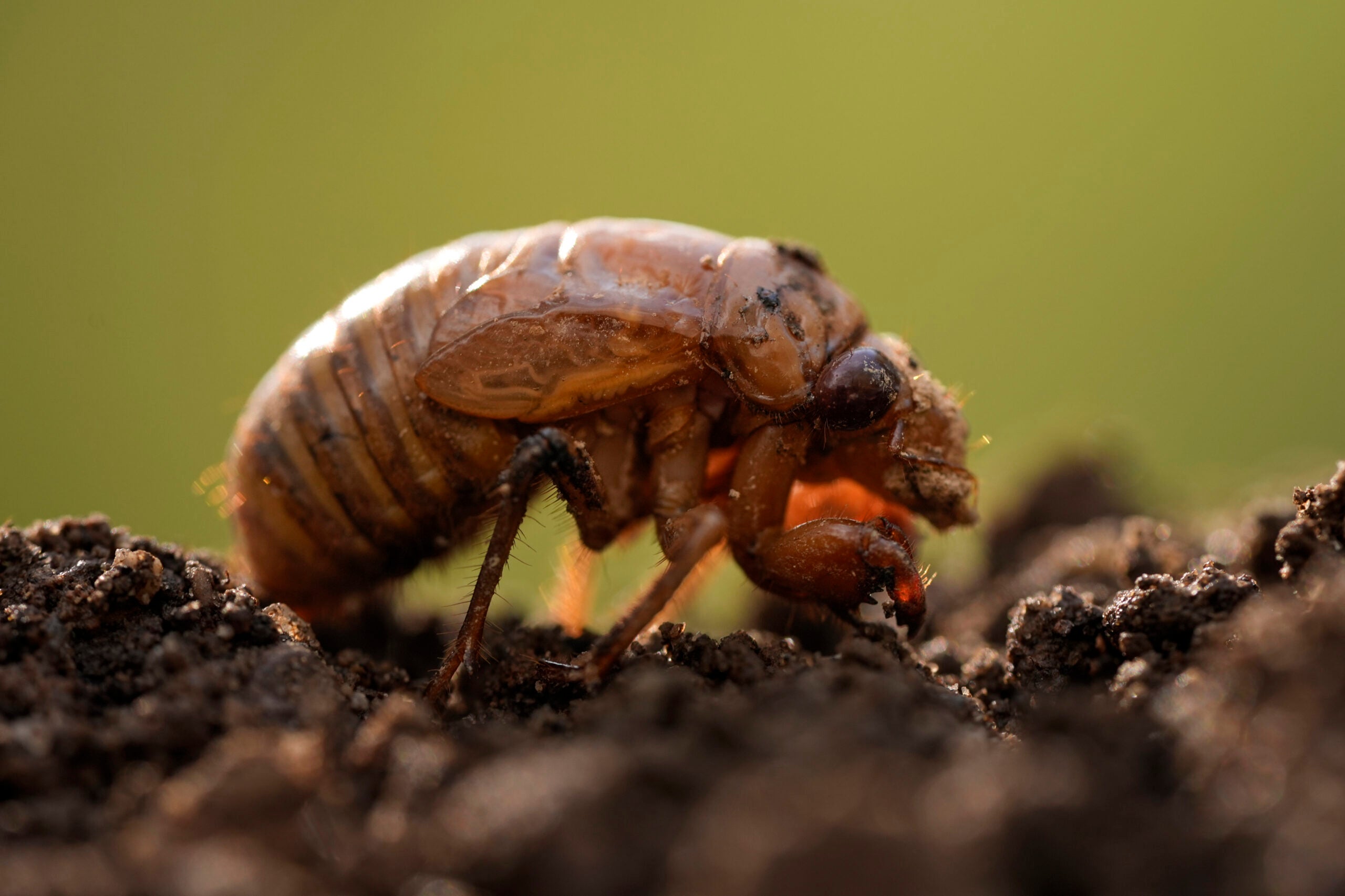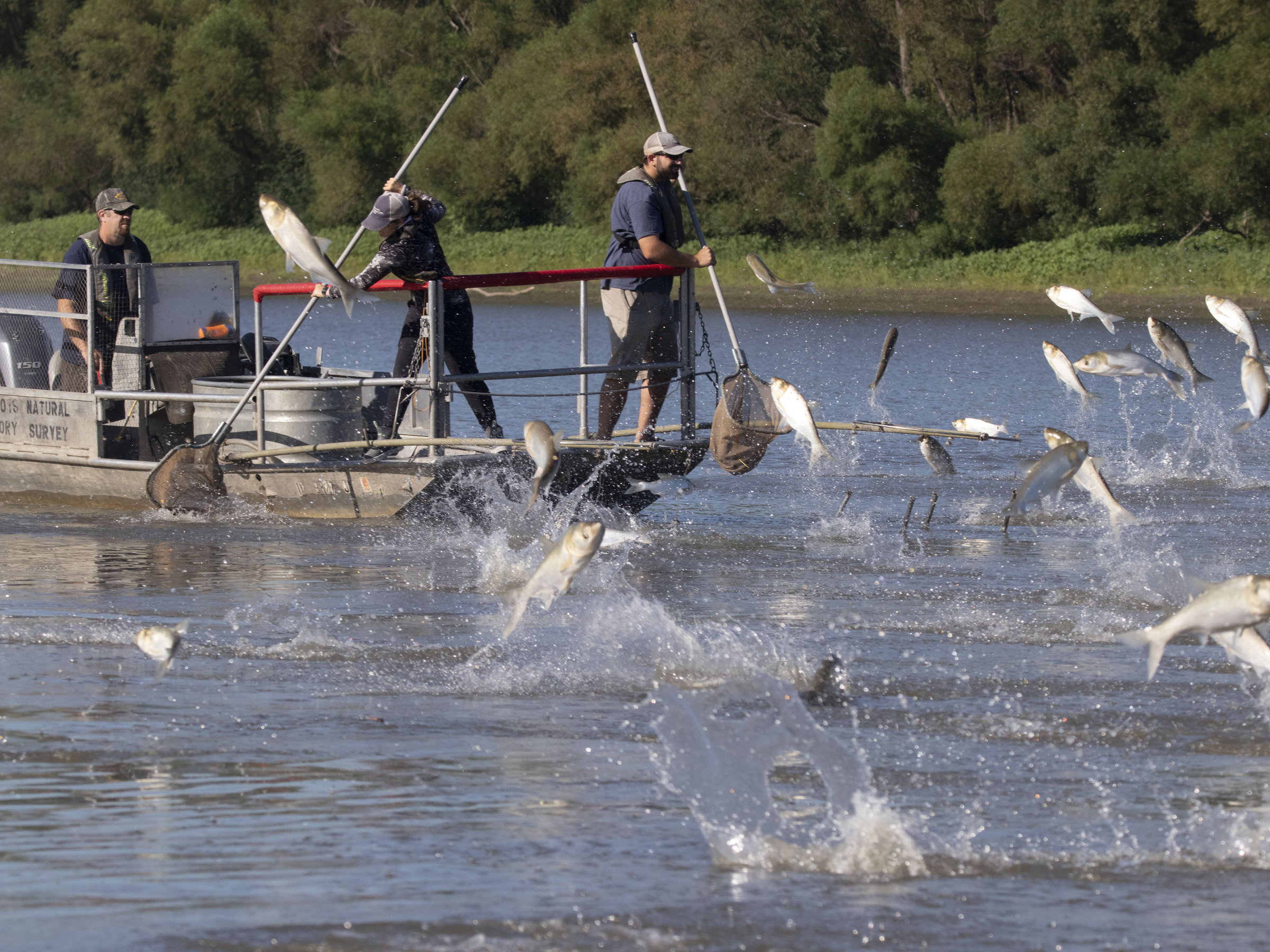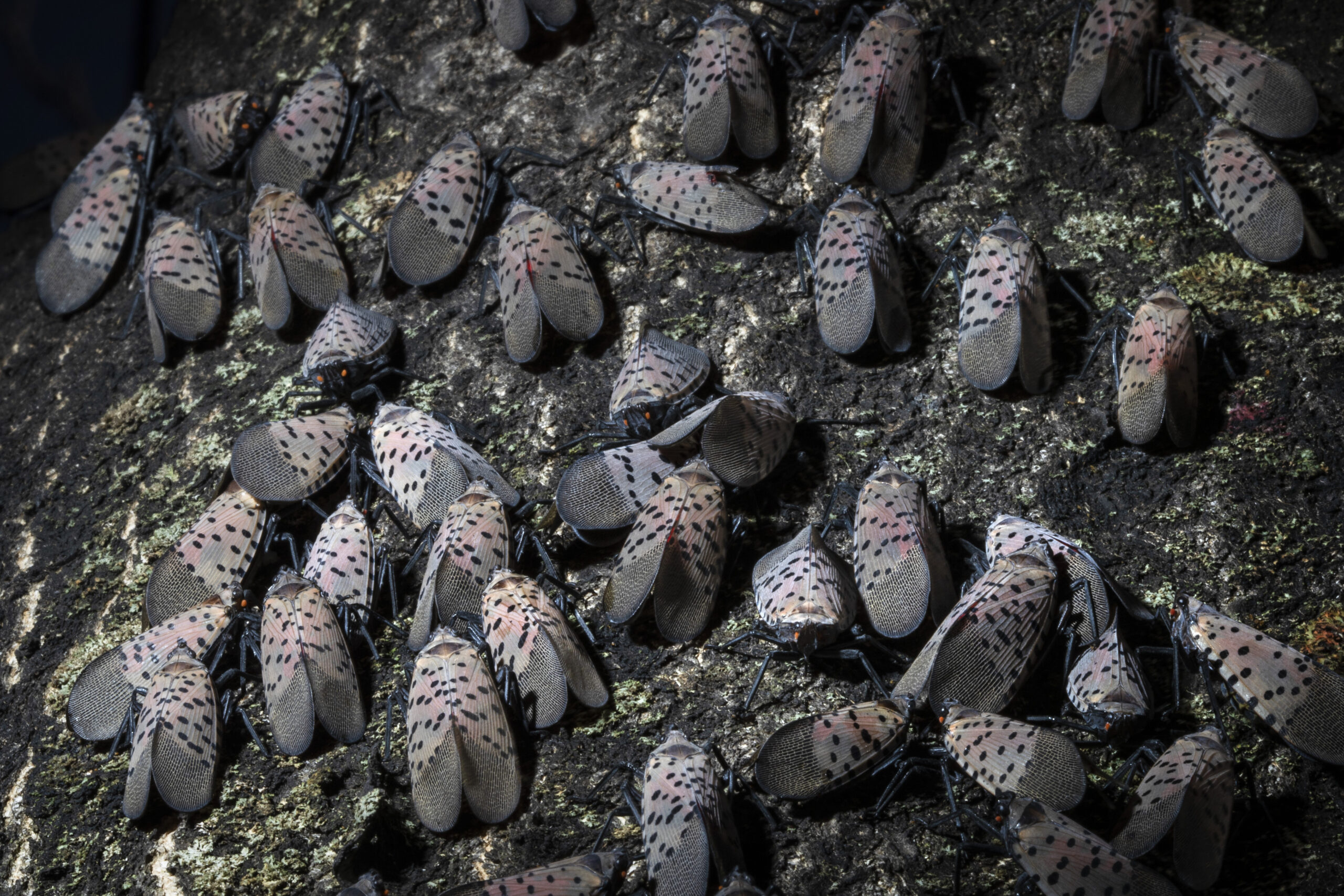It is a constant battle to control invasive species in our state. Larry Meiller finds out about invasive worms, including the newest arrival, the Asian Crazy Worm. Plus, recent changes in Wisconsin’s invasive species rules.
Featured in this Show
-
New Invasive Worm Could Cause Major Damage To Wisconsin Ecosystems
Officials with the state Department of Natural Resources have been concerned about the discovery of a new invasive species in the University of Wisconsin Arboretum last year: the “crazy worm.”
The species, Amynthas agrestis, also commonly known as the Alabama jumper and snake worm, is a transplant from east Asia. While there are many other invasive varieties of earthworm found in Wisconsin, most of them from Europe, the crazy worm exhibits behavior that is unique.
“They’re very excitable and aggressive,” said Bernadette Williams, a DNR invasive species specialist who focuses on forest health.
A DNR fact sheet on the species says that a crazy worm might “act crazy, jump and thrash when handled, and behave more like a threatened snake than a worm. Further, they may shed their tails when caught.”
In addition, the crazy worm is unique in terms of the damage it’s capable of rendering to soil. Even before it was detected in the state, it was clear that the species would pose a serious threat if it was able to gain a foothold.
As the fact sheet explains:
“Crazy worms change the soil, by disrupting the natural decomposition of leaf litter on the forest floor. They turn good soil into grainy, dry worm castings (poop) that cannot support the understory plants of our forests. Other plants, animals and fungi disappear because the understory community can no longer support them.”
“They create a soil signature that is completely unique to this earthworm,” Williams said.
While home gardeners usually think of earthworms as good for garden aeration, crazy worms can cause damage to lawns and ornamental plantings. Unlike other earthworms, the crazy worm will burrow up out of the soil and into nursery plantings.
In a forest environment, crazy worms can also further stress ecosystems that are already under pressure from other invasive insects, plants, pathogens and diseases.
In 2009, the DNR listed them as a prohibited species on Wisconsin’s Invasive Species Rule, NR 40, making it illegal to possess or transport them in the state. Nevertheless, the worm has now been introduced to the state, likely by accident through nursery stock.
Initially, biologists hoped that the crazy worm wouldn’t be able to overwinter in Wisconsin, given the different climate from which it comes. But as more is learned about this species, it seems that it differs from all of the other European varieties in terms of life cycle.
“It seems that this worm is on more of a hatch cycle,” Williams said. “The adults don’t overwinter, but their cocoons persist in the soil.”
As a result, the cocoons hatch when the soil returns to an ambient temperature in the spring. In addition, the crazy worm is able to reproduce by the time it’s 60 days old — a much faster cycle than that of European earthworm varieties. The quick cycle allows for two full hatches each year so that in late fall, according to Williams, “you get to these levels where you have really large numbers of them.”
Williams said that this was abundantly clear in the Arboretum last fall.
“You could just walk into certain areas and just disturb the soil a bit, and you would find quite a few of them moving around,” she said.
It’s going to take a concerted effort to identify the location of the crazy worm and to manage its spread.
“Because this is such a new discovery for us, we want the public to be aware of it right away, and to contact us when they find it,” Williams said.
Editor’s Note: To get in touch with Williams, contact her directly at bernadette.williams@wisconsin.gov or 608-266-0624.
Episode Credits
- Larry Meiller Host
- Judith Siers-Poisson Producer
- Bernadette Williams Guest
- Kelly Kearns Guest
Wisconsin Public Radio, © Copyright 2024, Board of Regents of the University of Wisconsin System and Wisconsin Educational Communications Board.




